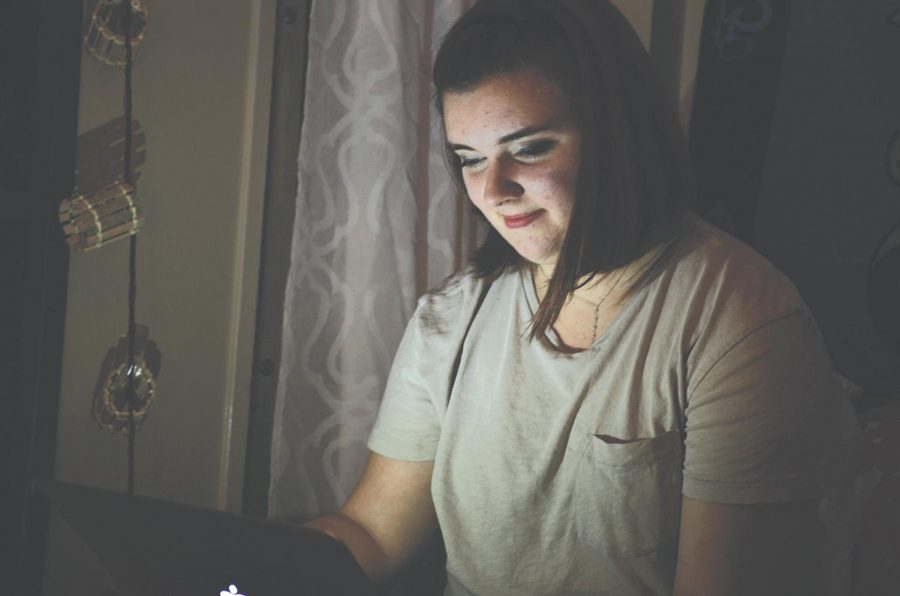Nighttime habits can affect sleep patterns
October 7, 2016
Wrapping up in a favorite blanket and cozy bed can be the perfect end to a long day. For some, this is not as easy as it sounds.
The common recommendation for the average college age student is seven to nine hours of sleep nightly, said George Robinson, professor emeritus of psychology.
However, if a person is able to function on less sleep without Excessive Daytime Sleepiness, that amount of sleep is fine for them, he said.
EDS is when a person receives enough sleep but still feels sleepy during the day, he said.
“You should be able to sit through a boring lecture wide awake,” Robinson said. “The boringness of the lecture can facilitate you going to sleep if you need sleep, but if you’re getting enough sleep, you should be able to stay awake during a lecture without any trouble.”
Sleep apnea, a condition where breathing stops and starts during sleep, can cause EDS. It can also be a side effect of narcolepsy, a neurological disorder that affects the control of sleep or wakefulness.
For those who suspect they have EDS, they should visit a doctor for diagnosis. Adopting healthier sleep habits, as well as medication, can be part of the treatment, according to the National Sleep Foundation.
Junior Maverick Dickinson said he usually gets six hours of sleep on weekdays and four on the weekends.
“I work all day Saturday,” he said. “Sometimes I just stay up all night Friday, and then I go to work at 5 a.m. on Saturday and end up staying up until around 2 or 3 a.m. that Saturday night as well.”
Another issue college students might experience is the effect of the all-nighter, Robinson said.
Those who stay up all night will likely need 8-10 hours the next night, he said.
Sophomore Caroline Hagan said she usually pulls all-nighters during finals week.
“Usually I drink more caffeine,” she said. “If not, I just tough it out.”
Staying up the next night will be more difficult because they body attempts to continue the circadian rhythm, or 24-hour cycle, and is unable to do so, he said.
However, even when students think they stay up all night, they probably do not, Robinson said. They could experience a micro-sleep.
“A micro-sleep episode is a brief period during which the person goes to sleep briefly and then wakes up,” he said. “It is something that, unfortunately, happens a good bit on the road, particularly with professional drivers.”
A micro-sleep is typically a few seconds, during which the person does not lose muscle tone and still seems to function. They are amnesiac during the sleep.
Freshman Johnathan Harris said he would like to find the perfect balance between getting enough sleep and not sleeping too much.
“Lately, I’ve been staying up on purpose to balance out my sleeping habit,” he said. “It’s terrible because now I’m used to sleeping (a lot).”
Students who regularly have trouble falling asleep have a few options to remedy the problem.
Bright lights, as with cellphones and laptops, stimulate receptors in the body that can stimulate melatonin, Robinson said.
“Melatonin, when it’s increased, is what tends to decrease your sleepiness,” he said. “Have a period of about 20-30 minutes (without the light) before going to sleep.”
Doing school work in bed can also make falling asleep difficult because working becomes conditioned to work in bed, Robinson said.
He also said to avoid coffee. Because of its long half-life, caffeine stays in the system for hours after someone drinks it.
Lastly, Robin suggests avoiding exercise right before sleep.












